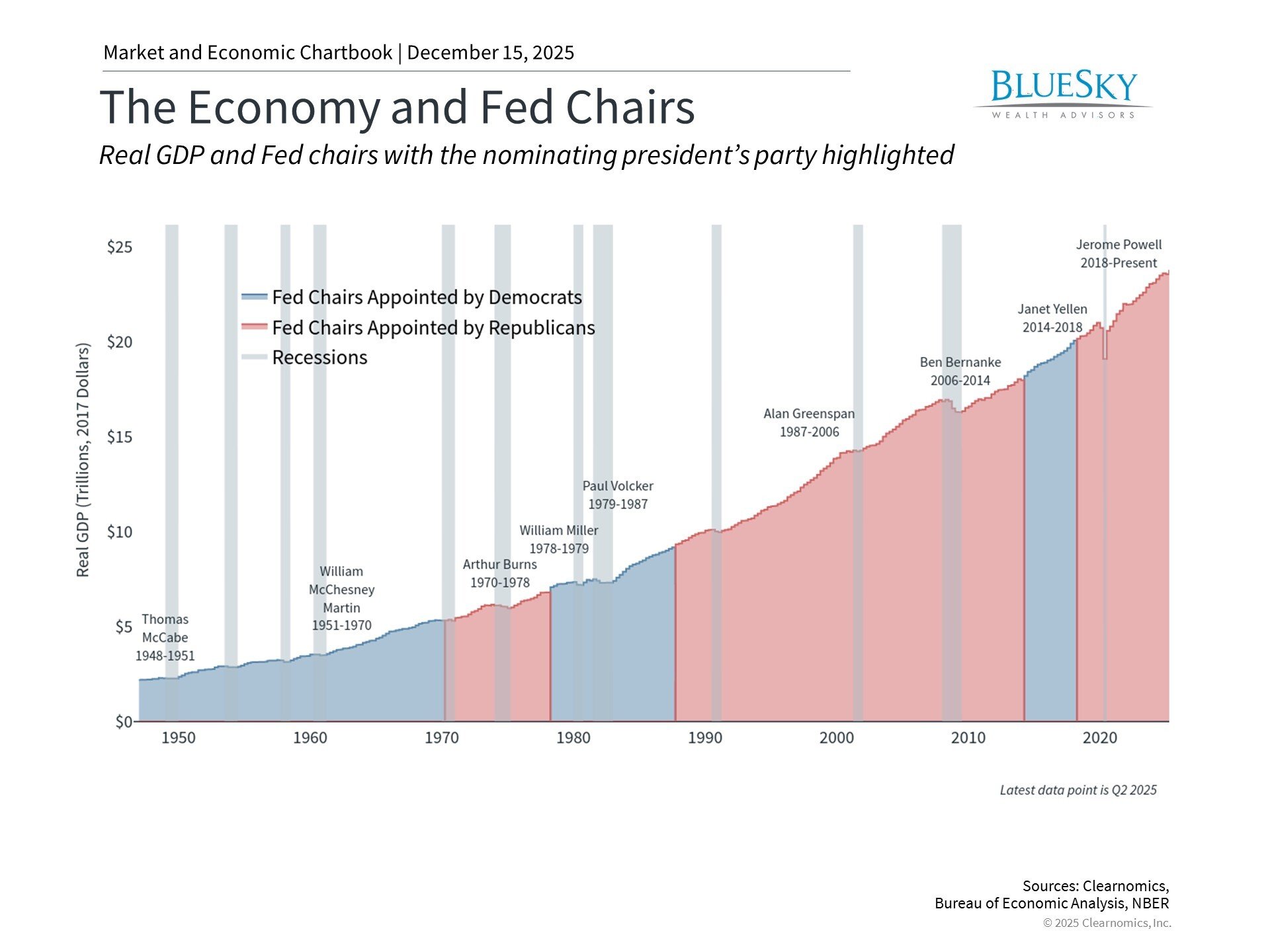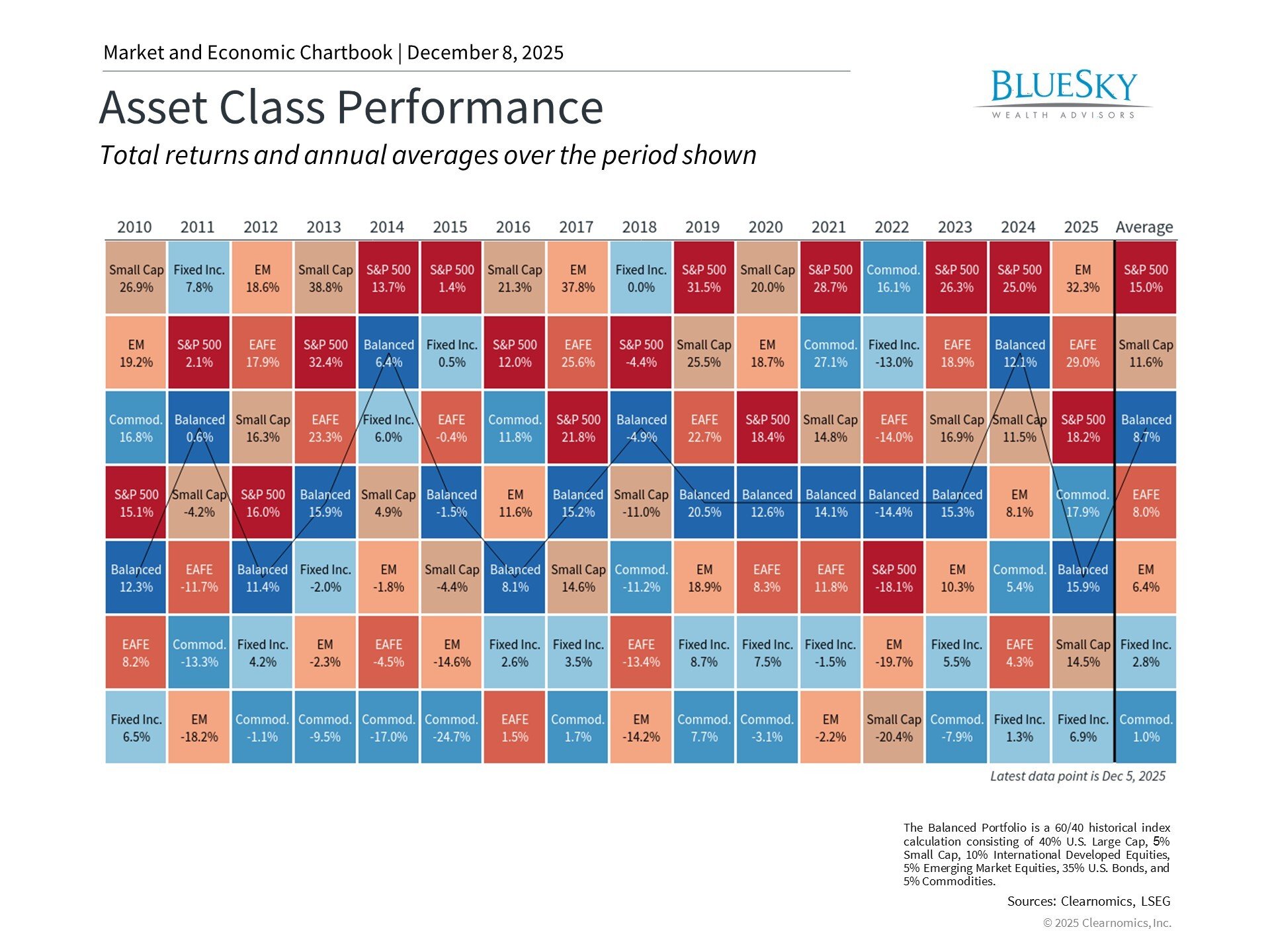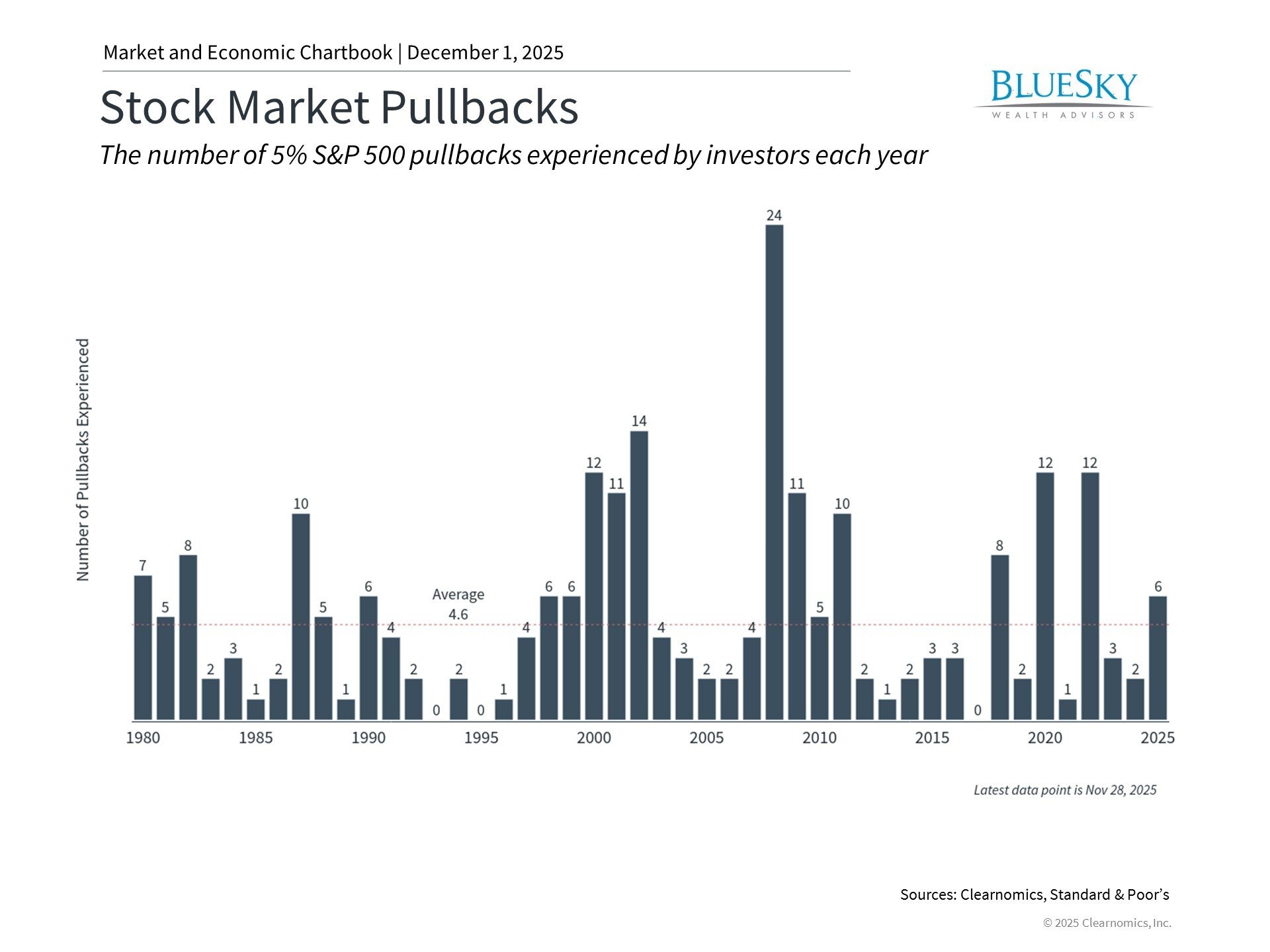
Economic Update: Market Trends, Inflation, and Tariffs
Economic Update: Market Trends, Inflation, and Tariffs

As of March 14, 2025
If you would like to watch the video version of this article, please click here.
In light of recent economic developments, BlueSky Wealth Advisors aims to provide a clear and comprehensive overview of the current financial landscape. With uncertainty in the markets and concerns about inflation, interest rates, and policy decisions, our goal is to offer clients a well-grounded perspective based on data-driven insights rather than speculation.
Economic Uncertainty and Market Trends
The economy continues to present mixed signals, contributing to uncertainty among Americans. Before assessing the likelihood of a recession, it is essential to distinguish between rising individual prices and inflation as a broader economic trend. Inflation refers to a sustained increase in the overall cost structure of the economy, encompassing wages, goods, and services. While inflation has significantly declined from its previous highs, concerns about future price increases persist. The Federal Reserve has paused interest rate cuts, contrary to earlier expectations of multiple reductions. Although lower rates can stimulate markets, they may also signal an overheated economy. Currently, available data does not indicate a resurgence of uncontrolled inflation. Additionally, consumer confidence has declined, which is noteworthy but does not necessarily imply an imminent recession.
Economic policy uncertainty remains high, influenced by news, tax policy, and forecasts. While this level of uncertainty has been seen in previous periods without leading to recessions, it does indicate a complex financial environment that requires careful navigation. It is also important to note that the stock market and the economy are not one and the same. Historically, the stock market has been an unreliable predictor of recessions, often reacting to speculation rather than fundamental economic shifts.
Stock Market Performance and Investment Strategy
Recent headlines may suggest that the market is in turmoil, but a closer analysis reveals a more nuanced picture. Year-to-date, several asset classes have performed well, including international investments, emerging markets, bonds, and real estate investment trusts (REITs). The primary source of negative performance has been concentrated in U.S. large-cap stocks, particularly in the technology sector.
Investors heavily weighted in big technology stocks such as Tesla or Nvidia may have experienced recent losses. However, BlueSky Wealth Advisors has consistently recommended a diversified investment approach that includes bonds, international equities, and various asset classes to mitigate such risks. Our diversified portfolios are designed to perform well in all market conditions, balancing risk and reward.
Market fluctuations are a normal occurrence. Historical data shows that a 5% pullback in the S&P 500 happens nearly every year, with some years experiencing multiple declines. While market downturns can be concerning, historical trends indicate that disciplined, long-term investment strategies tend to yield strong returns over time.
At this time, we do not recommend any major changes to investment portfolios based on current market conditions. The strategy remains focused on maintaining diversification and adhering to evidence-based investing principles. Clients who experience personal changes, such as job loss or retirement, may need tailored adjustments, and we encourage you to consult your advisor for personalized recommendations.
Tariffs and Global Trade Considerations
The implementation of new tariffs has introduced additional uncertainty into the economic landscape. While political narratives surrounding tariffs often create heightened concerns, it is essential to recognize that tariffs have existed throughout history and global markets have always adapted.
Recent tariff policies have focused on materials such as aluminum and lumber. For example, tariffs on Canadian lumber have led to increased demand for Southern Yellow Pine, a resource that has historically been undervalued despite its abundance. As a result, the market for this material has strengthened, demonstrating how trade policies can shift supply and demand dynamics.
Although tariffs can create disruptions, economic forces tend to reach equilibrium over time. Businesses, consumers, and governments adapt to changing trade policies, and markets eventually stabilize. While the preference would be to avoid trade conflicts, history shows that tariffs alone do not dictate long-term economic outcomes.
Conclusion: Staying Focused on Data and Strategy
Despite heightened uncertainty, the broader economy remains stable. Company earnings are holding steady, unemployment is low, and many investment sectors continue to perform well. Predicting short-term market movements remains a challenge, and emotional decision-making can often lead to suboptimal outcomes.
BlueSky Wealth Advisors remains committed to data-driven, evidence-based investing. We encourage clients to focus on long-term financial goals and maintain diversified portfolios to navigate varying market conditions. Additionally, a net worth assessment tool is available to help clients understand their overall market exposure across different asset classes.
For any questions or concerns, our advisors are available to provide guidance and reassurance during these uncertain times. Thoughtful planning and strategic investing remain the best approach to achieving financial stability and long-term success.





